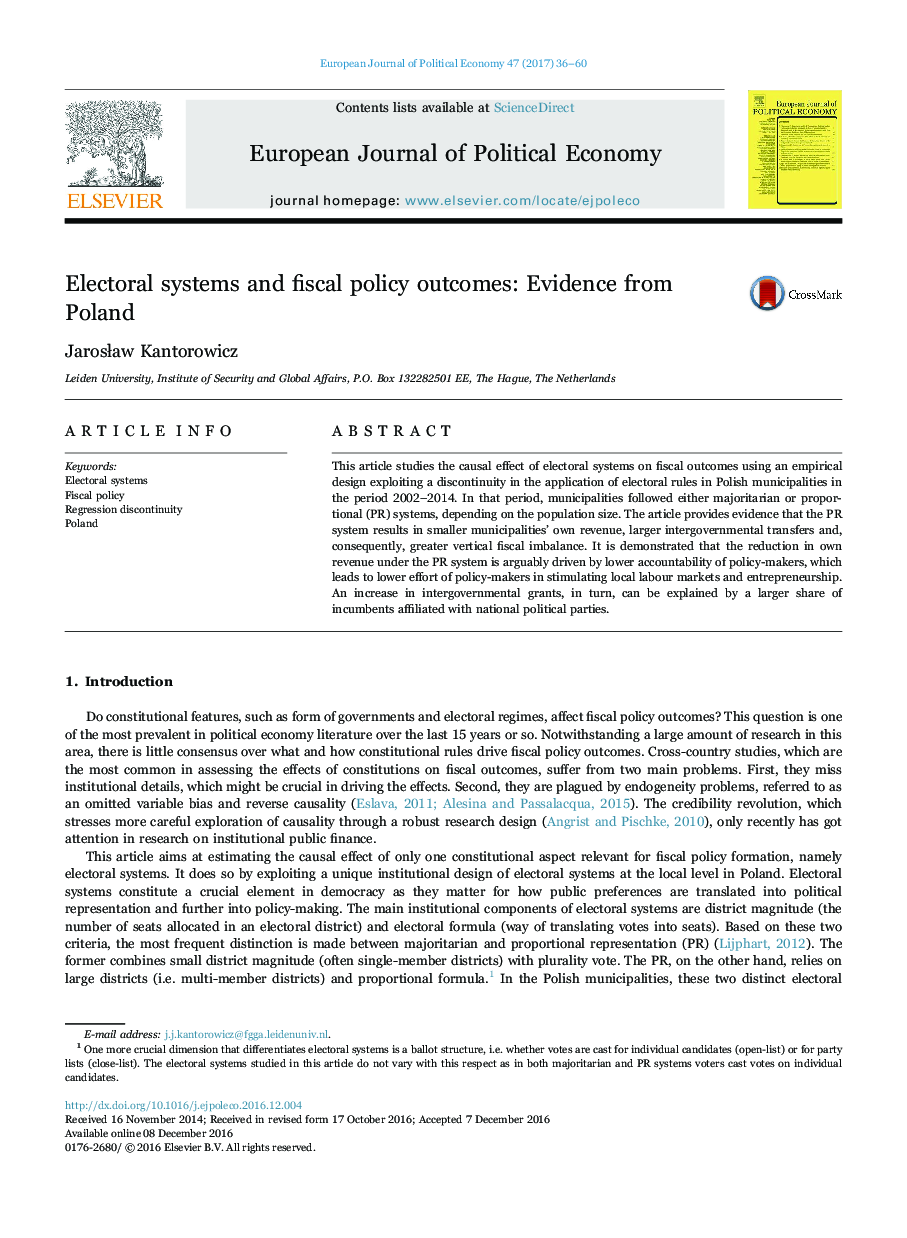| Article ID | Journal | Published Year | Pages | File Type |
|---|---|---|---|---|
| 5067799 | European Journal of Political Economy | 2017 | 25 Pages |
â¢This article estimates the causal effects of electoral systems on fiscal policy outcomes.â¢It exploits a unique quasi-experimental design of electoral systems in Polish municipalities.â¢In the period of 1998-2014 municipalities in Poland followed either majoritarian or PR systems.â¢The application of these two electoral systems depended on the population size.â¢The PR system results in smaller own revenue, larger intergovernmental transfers and greater VFI.
This article studies the causal effect of electoral systems on fiscal outcomes using an empirical design exploiting a discontinuity in the application of electoral rules in Polish municipalities in the period 2002-2014. In that period, municipalities followed either majoritarian or proportional (PR) systems, depending on the population size. The article provides evidence that the PR system results in smaller municipalities' own revenue, larger intergovernmental transfers and, consequently, greater vertical fiscal imbalance. It is demonstrated that the reduction in own revenue under the PR system is arguably driven by lower accountability of policy-makers, which leads to lower effort of policy-makers in stimulating local labour markets and entrepreneurship. An increase in intergovernmental grants, in turn, can be explained by a larger share of incumbents affiliated with national political parties.
